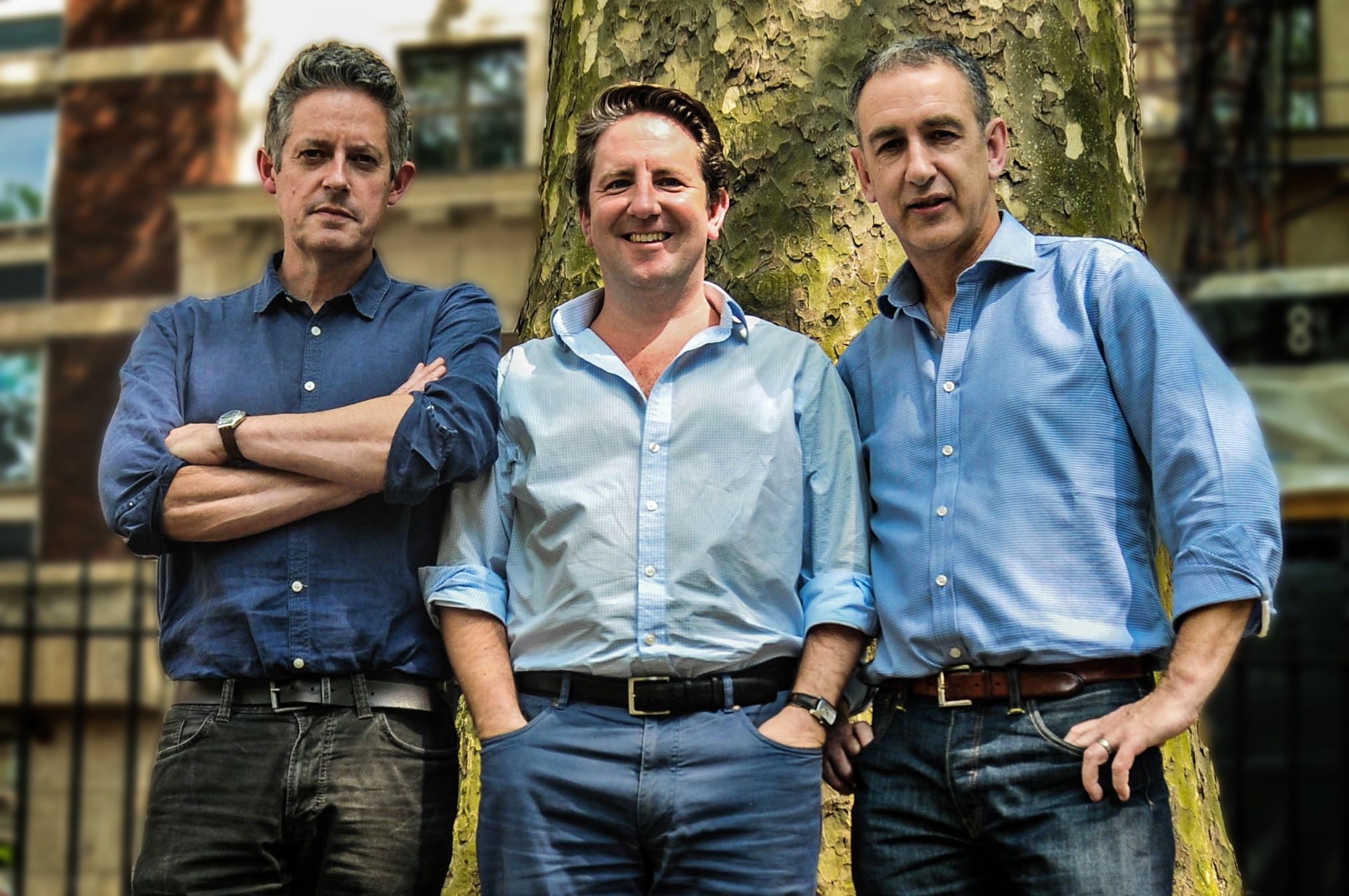Spain continues to the wine country that keeps on giving, with seemingly quality and value at every price point you want on a wine list. Which is why the newly formed The Three Amigos hope they can collectively offer what busy on-trade buyers are looking for from this diverse country.
It has long been said that trying to get things done with three people is just bad for business. You know the saying: two’s company and three’s a crowd.
But is that really the case? The world of entertainment has certainly shown that trios can work with the likes of the Bee Gees, Charlie’s Angels, the Marx Brothers, the Three Degrees and the Singing Tenors. The business community has also shown the sense in combining resources rather than working out on your own.
Which is very much the case with another famous, ahem, threesome, The Three Amigos, who have been re-invented for the modern wine industry. So, step aside Steve Martin, Chevy Chase and Martin Short and let’s introduce ourselves to wine’s very own Three Amigos, Harry Hunt, Robert Hunter and Simon Tyrrell.
All three have come together to share their love – and specialty – in Spanish wine, to create potentially a one-stop shop in Spanish wines for regional wholesalers, wine merchants, restaurants and sommeliers.
Each of the Three Amigos have been producing and exporting wine from Spain for some time, but now hope to be able to combine their talents to create a better distribution solution for busy buyers looking to take a low risk, but deeper dive into Spain.
Separately the Three Amigos are:
* Harry Hunt, who runs Bodegas Tierra Hermosa, a negociant production business sourcing, making and developing wines from the Andalucía region of southern Spain. Hunt creates wines and develops brands, such as ANDA, which is currently available exclusively in the UK through Waitrose.
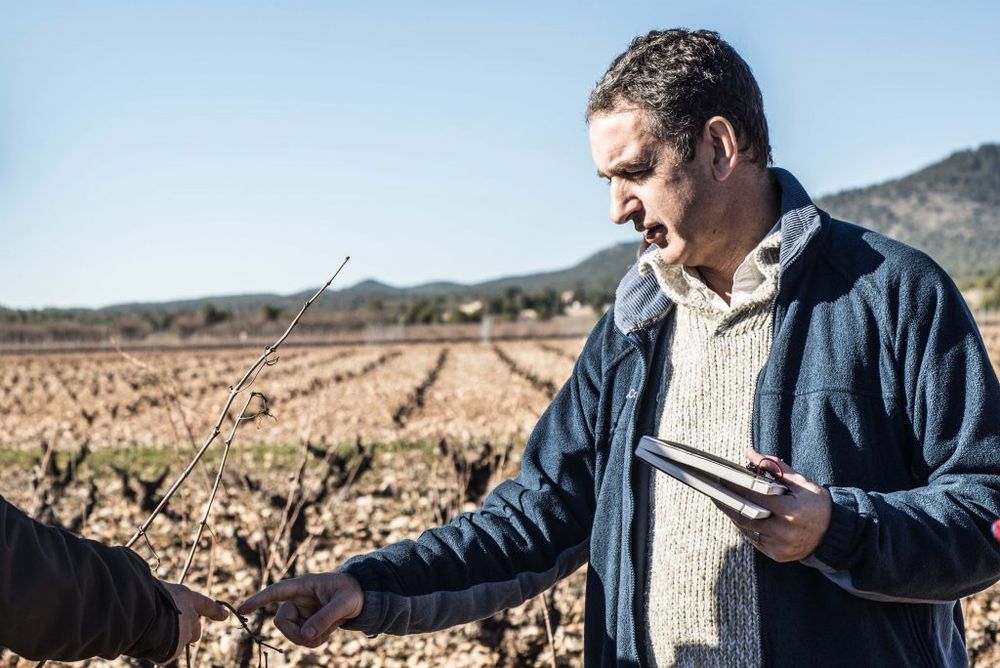
Robert Hunter has been making wine and working in Spain since the mid 1980’s
* Robert Hunter has been living and working in Spain since 1986 and running his own wine business, Vinergia, since 2005, where he looked to help what had been an “explosion” in the number of small-to-medium sized Spanish producers who might need support bringing their wines to market both in different regions of Spain, but also overseas. He then developed the business to work with distributors on creating bespoke ranges and looking to source and make wine the market wants, like his Campos de España varietal range, rather than have wines he needed to sell.
The Campos de España wines have been very successful in breaking down the vinous map of Spain into which region is best for which grape varieties.
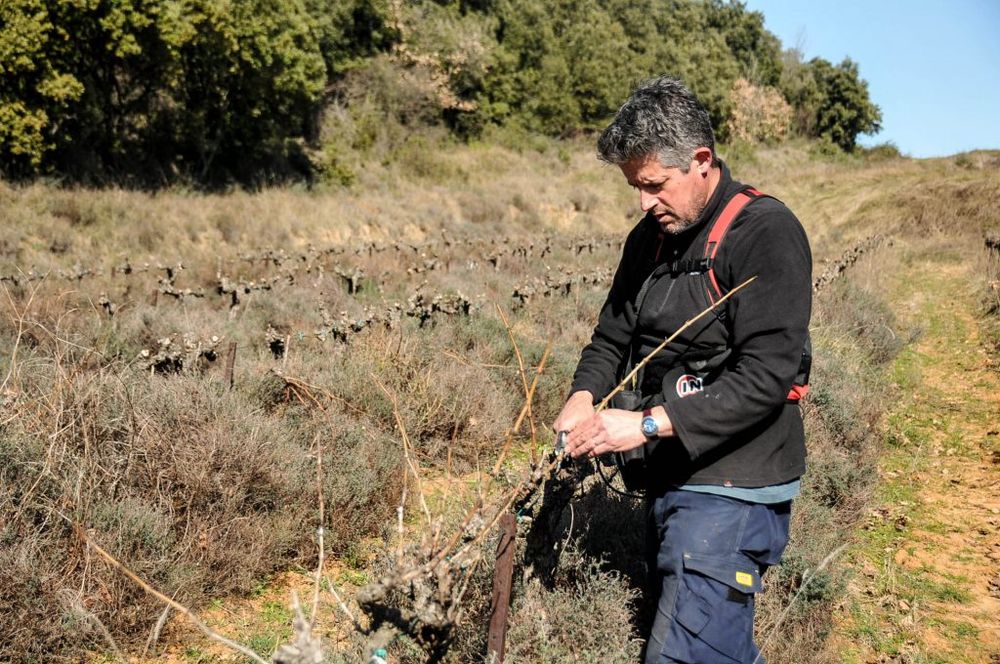
Simon Tyrell hopes the three working together will give all their wines a better chance in the UK market
* Simon Tyrrell set up his own wine import business in Ireland in 2000 when he saw the opportunity to go it alone and offer a specialist service. His initial focus was on sourcing and importing wines from the Rhône Valley “which was my real passion at the time” and where he still runs his own vineyard and negociant business. Since moving away from importing, he has diversified to build up his own Spanish network of producer contacts, and now creates wine for the Irish family wine merchants, Tindal, in two separate areas in Spain.
“Our grape purchases are generally made from people we have known for a long time and so we’ve been able to follow their methods and progression,” he explains. “One of the advantages of being a wine importer for a long time is lots of contacts! Ultimately, I am looking for sites that provide clean, flavoursome fruit, with good acidity levels and that have a sense of originality about them.”
The right time
“We’re businesses that are at varying stages in their life cycle,” says Hunt, who concedes he is more at the starting point than Hunter and Tyrrell, having joined the wine trade late after a career working in corporate PR and crisis management. A complete change in direction saw him study to be a winemaker at Plumpton College in 2009 and start his own Spanish wine business on the back of that.
What they do have in common, regardless of their experience, is that they are each out there fighting, cajoling, and working with customers not just in the UK, but in key markets across Europe, and into Asia and the US. And there’s the rub. As the opportunities for their respective companies grows, the harder it is focus all their efforts on a key market like the UK.
The hope is by bringing their resources and portfolios together they can go to the market with a more powerful, competitive and persuasive range than doing so on their own.
To help do so the Three Amigos have teamed up with UK importer, North South Wines, who will handle their distribution for them, whilst at the same time giving North South Wines access to a large, eclectic and volume focused Spanish wine portfolio.
Friends in business
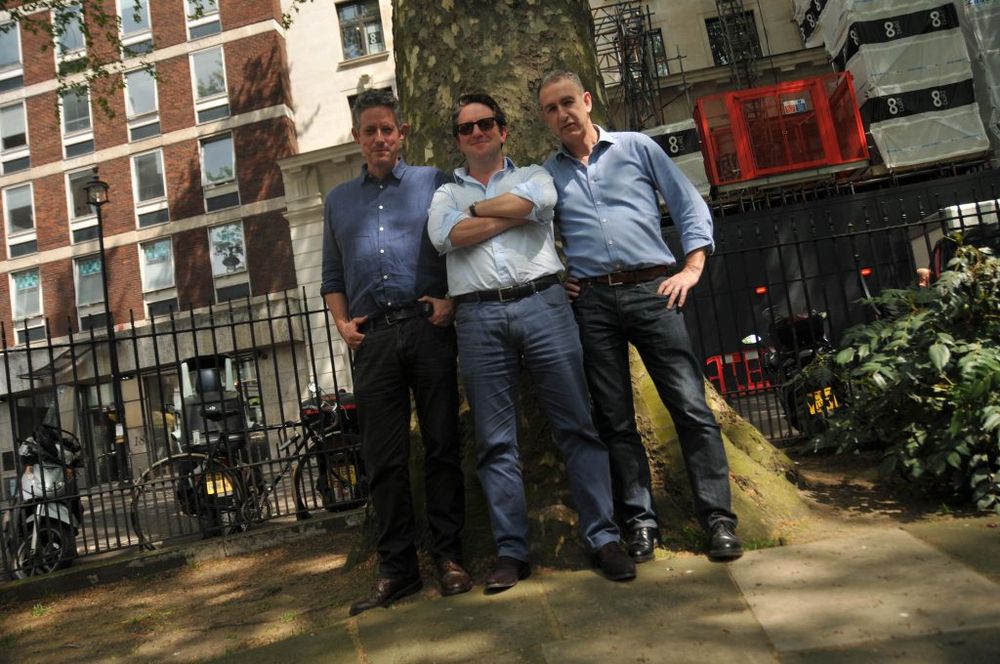
It also helps that all three are good friends as well as sharing the same passions and interests in wine
OK, so they all produce, source and sell Spanish wine, but that does not mean they might want to work so closely together. That is until you find out they are all intertwined with each other over many years of working in and out of the wine trade.
Hunter and Tyrrell first clasped eyes on each other at the 1999 Champions League Final between Manchester United and Bayern Munich in Barcelona, where Hunter was there working for Miguel Torres and Tyrrell was there representing Torres’ Irish distributor. They have been working on and off with each other on an informal basis since they both set up their own respective wine businesses.
Tyrrell then linked up with Hunt when they were both on the same Plumpton College winemaking course. “Harry kindly put me up once a night for two years when I’d fly over from Ireland to attend the course,” he recalls.
What they each have is an astute understanding of what the market needs and then an ability and willingness to go out and work with producers to create blends that can suit those commercial needs.
Hunter: “We can adapt blends to a northern European drinking style, which is making wines a little bit softer, a little bit easier, still full of fruit, but getting rid of the astringency that a lot of Spanish winemakers and drinkers would accept in their wines. For in Spain, wine is food.”
His business model has been a good success in most of the major wine-drinking markets, but less so in the UK.
“The UK has always been difficult for me. I have not really got a lot of experience of working in the market, but I wanted to be more involved here. There is also a family connection still in the UK with my folks living here and I have been spending more time in the UK as one of my daughters is at school here now.”
New focus

Harry Hunt has swapped PR for his love of Spanish wine
Which is where Hunt can pick up the story. “At the same time as Robert was thinking about putting more efforts into the UK, I was doing the same and wanted to give a new focus to my wines and a proper revamp in terms blends, brands and distribution.”
Equally, Tyrrell is looking to build distribution for his own growing range of Spanish products. “We are right at the very start of bringing our Spanish wines to market with the first wine, Oludeo, a high-altitude Monastrell from Yecla, only just hitting the shelves. The second wine, a Garnacha from the Sierra de Gredos, a region to watch, will be released before the end of year.”
But, as he says, the “UK market is complicated”. “To offer something to the importer, retailer and restauranteur in such a competitive market, you have to offer a different angle. Each of us brings a different skill set and together we have a fairly large selection from numerous regions within Spain. By creating the Three Amigos, we believe there is something for everyone within our offering and that we are definitely stronger together.”
The same approach
Hunt agrees: “All three of us being Brits making wine in Spain is an obvious connection to the UK, in a commercial and personal sense, in terms of bringing those wines to the UK market.”
“So, it’s a bit of a ‘perfect storm’ for all three of us at the same time wanting to increase our presence in the UK and to combine our portfolios,” says Hunt. “But we also know the UK is a very tough nut to crack and needs a concerted effort.”
They have a combined portfolio they believe “sits together nicely”, in that they cover all geographical areas of Spain, at all price points and volumes, as well as having a commercial proposal, in that they can provide wines for by-the-glass, box tick all the classic Spanish wines for a list and offer wines that are “quirky and unusual”.
They also have a similar approach to the kind of producers and customers they want to work with. Tyrrell explains: “The type of operators we look for, or are currently working with, are those who understand how fast the wine world is changing. There has been a momentum created by the curious nature of a new generation of wine drinkers who have been priced out of regions like Bordeaux and Burgundy and yet are looking for something more exciting than what is on offer from other so called ‘classic’ areas. We want to work with importers, retailers and restaurateurs who have the same sense of exploration.”
Having the wines is one thing, getting a route to market is another, which is where North South Wines comes in thanks to a previous connection that Hunter had with the equally fast-growing UK distributor. He was able to introduce North South to the project and get them to act essentially as their “logistics and administration arm” in the UK.
It means the Three Amigos can ship their combined portfolio over from Spain and use the North South Wines bond in the UK, without having to set up a different company to do so.
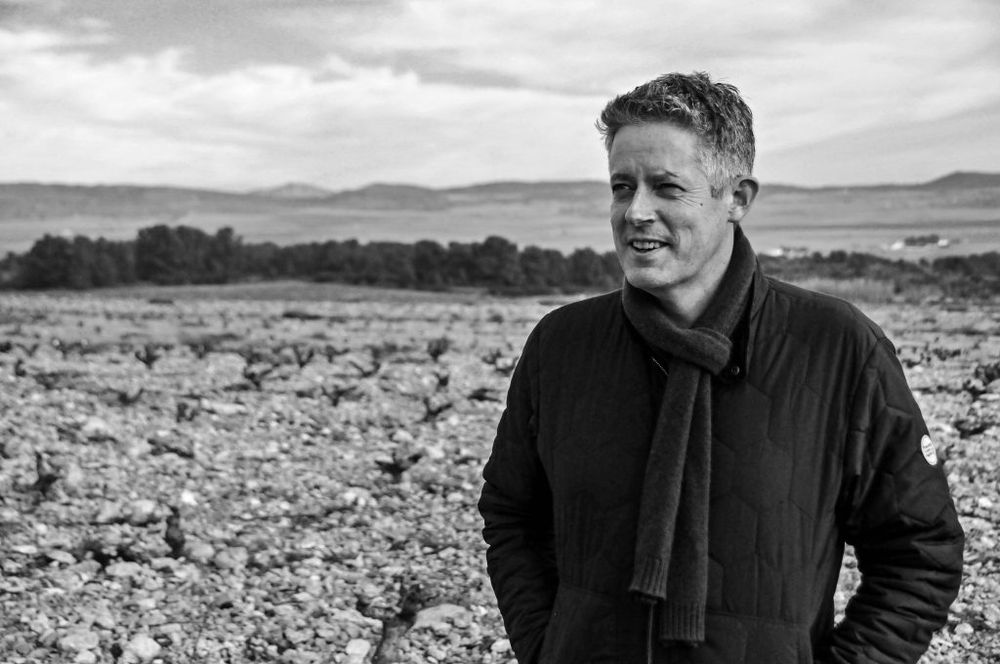
Simon Tyrell believes The Three Amigos will also be able to show their own individual winemaking skills as well
Out telling the story…
The next step in the process has been getting out and working the hard miles to tell, as Hunt says, “everyone and anyone we know and will ever know in the wine industry” about what they are trying to do. “You’ve really got to put the hours in to get the ball rolling,” says Hunt.
High on their target list are regional independent wholesalers, who potentially are looking for good quality, diverse, but also volume Spanish wines that give them an alternative to the main national distributors’ wines that can sometimes dominate their lists.
“We are not simply going around to people with bags of samples, we are sitting down and talking to them about what the Three Amigos project is all about and then asking them what do you actually need, what do you want,” explains Hunt. “We can offer people a portfolio of Spanish wines that everyone else hasn’t got. We hope to provide them with a point of difference. A range of brands that are currently not in the UK.”
“As well invaluable on the ground expertise from Spain,” adds Hunter.
Hunt also stresses that they “are not trying to be all things to all people” and their principle focus is through to the on-trade and independent wine merchants.
“It’s not just about offering them something new, it’s about asking them how we can best service them,” he says. “Everyone we have spoken to loves the idea of what we are trying to do, but we appreciate it will take time.”
Direct from Spain
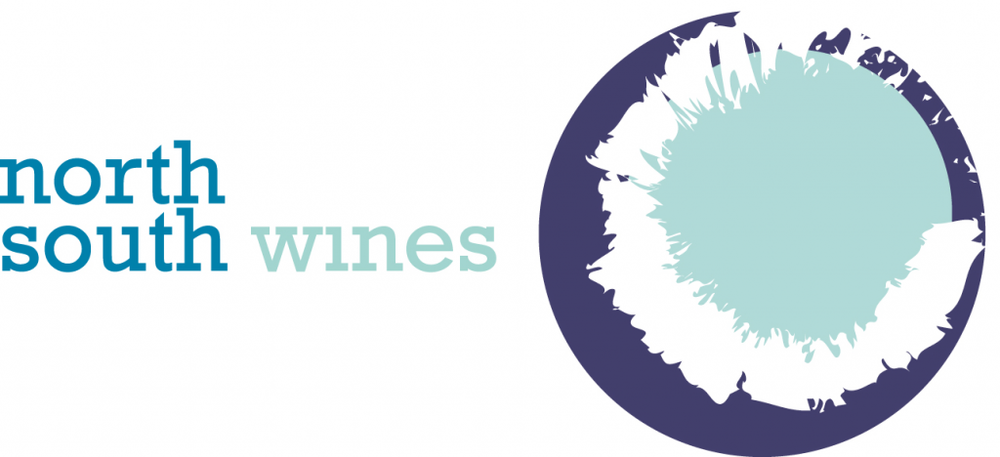
As well as the UK bond at LCB, the Three Amigos have also joined forces to hold all their stock at one central warehousing point in Spain. “You can order direct from there if you want and take mixed pallets of what you need. We are trying to be as flexible as we can,” explains Hunt.
The North South Wines connection means their wines can also be part of a wider order from North South’s portfolio. Customers can choose which Three Amigos Spanish wines they want from a North South list that includes all the range, the different logistical options and costs, depending on whether they want the wine taken from LCB in the UK, or the central warehouse in Spain. With all invoicing and ordering being handled by North South.
“We can then focus on going out and selling, whilst developing our portfolio,” says Hunt.
The added advantage of working together in this way is that there is a clear understanding that it is one thing producing wine, but a very different skill in then “servicing” them into the market. Which is what the Three Amigos hope their new model can deliver.
“By coming together, we want to offer a good service option, whilst also maintaining our productive individuality,” says Hunter. “We don’t cross over at all in terms of wine.”
Hands on support
So, as well as producing, distributing and getting the wines out to customers, the Three Amigos are also committed to then providing crucial end-user support with staff training, wine dinners and tastings. “Getting out into the trade, it’s clear that there is a definite change in the way smaller and medium sized retailers are trying to work. It is more difficult for them to get people into their shops, so it means a lot more activity, which we can help them with,” says Hunter.
They can also bring their individual winemaking talents to the table as well, says Tyrrell. “I like to think that I bring a particular wine making style that is adapted to carefully selected regions, in the hope of producing something that is a bit different to what was has gone before. It may seem obvious, but as a producer you need to have a very clear vision of the style of wine you want to create. Of course, the growing conditions will contribute to the final profile of the wine, but I think there is a current trend to play down the role of the winemaker whereas, in my opinion, their role is probably the key factor. For me, I want to make wines like the ones I most enjoy drinking; Burgundy, Northern Rhône, Ribera Sacra, Piedmont etc. and so I do my utmost to strive for this style.”
Scaling up
Another added factor the Three Amigos have is access to “juice” and volume in all the major producing areas of Spain. As Hunt explains: “There are a lot of things we can do for people if they have particular requirements. Collectively, we know a very large number of Spanish producers, and we know how to make and blend wines and package them in a certain way that works internationally. We are all what you might call ‘negociants-plus’.”
“There is a core portfolio, but that is really just the starting point. Behind the scenes, there is a lot more than we can do,” adds Hunt.
They are also happy to work on a partnership basis with other smaller importers, or merchants, who may at any given time want to source or scale up their offer from Spain, by offering them something new and different.
“The reality is that you need two or three items that tick over and allow you to bring in three or four pallets a month, every couple of months, in order to run the logistics and grease the wheels,” says Hunter.
“That then allows you to tag on all the other wines that we can offer,” adds Hunt.
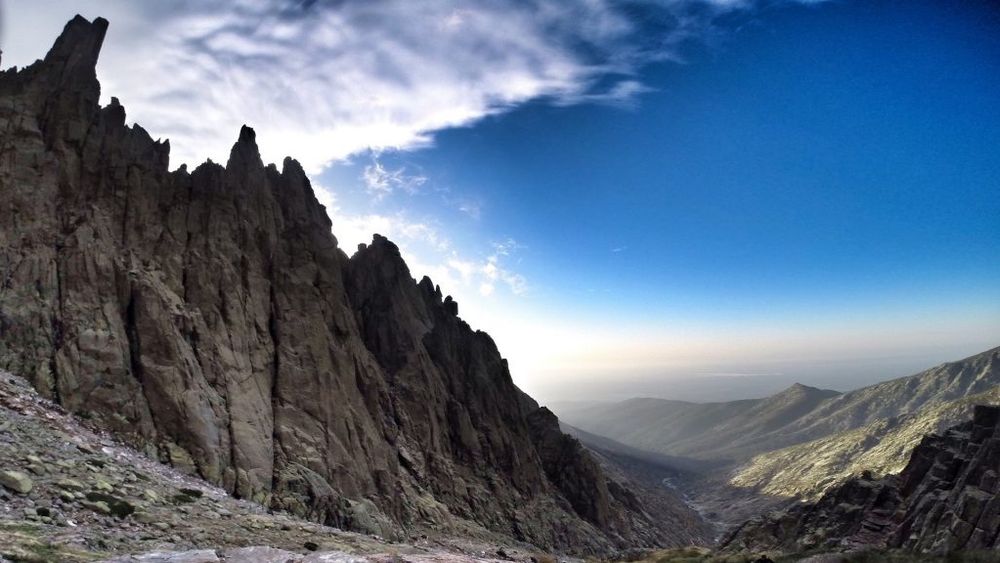
Sourcing wine from remote areas as the Sierra de Gredos is where they hope to make a difference
Lower costs
Their contacts in Spain also mean they can offer potential lower costs in terms of brand development, label and packaging design, that might mean using a Spanish design agency that might charge €1,000 compared to £2,500-plus in the UK.
There is also the opportunity to widen their relationship and take the Three Amigos into other international markets, where their combined offer makes them even more relevant to the needs of a local importer/distributor.
Tyrrell explains: “Firstly, we’d like to see the concept find success in the UK market, as each of us has a strong connection there. After that I’d like to see us take it to other markets and to continue to explore other winemaking opportunities in Spain.”
He adds: “There’s no shortage of wine and opportunities to go after. Once I started making wine in Spain, it was an obvious destination for me. There is so many exciting things to discover and we’re only at the very outset of understanding what Spain has the potential to deliver. Traditionally, for many of us, we believed Spain meant Tempranillo aged in American oak, with a few other wines thrown in. This was in many ways due to the commercial power of the large Rioja producers, but this landscape is rapidly changing.
“For me, the Sierra de Gredos and the Ribera Sacra are two regions that best express the new Spain. Wines predominantly made from Mencia and Garnacha respectively but showing a finesse never seen before in Spain. These wines come from difficult to work, high altitude or steeply sloped vineyards and so the consumer has to be taught that there is a cost to producing wines like these. Very little can be done by machine and the prices reflect this.
“The openness of the Spanish to allow you into their vineyards and to use their winemaking facilities is extraordinary in comparison to other countries I’ve worked in.”
And then there’s the name…Then there is the Three Amigos name. Which started off as a joke between the three of them and then stuck.
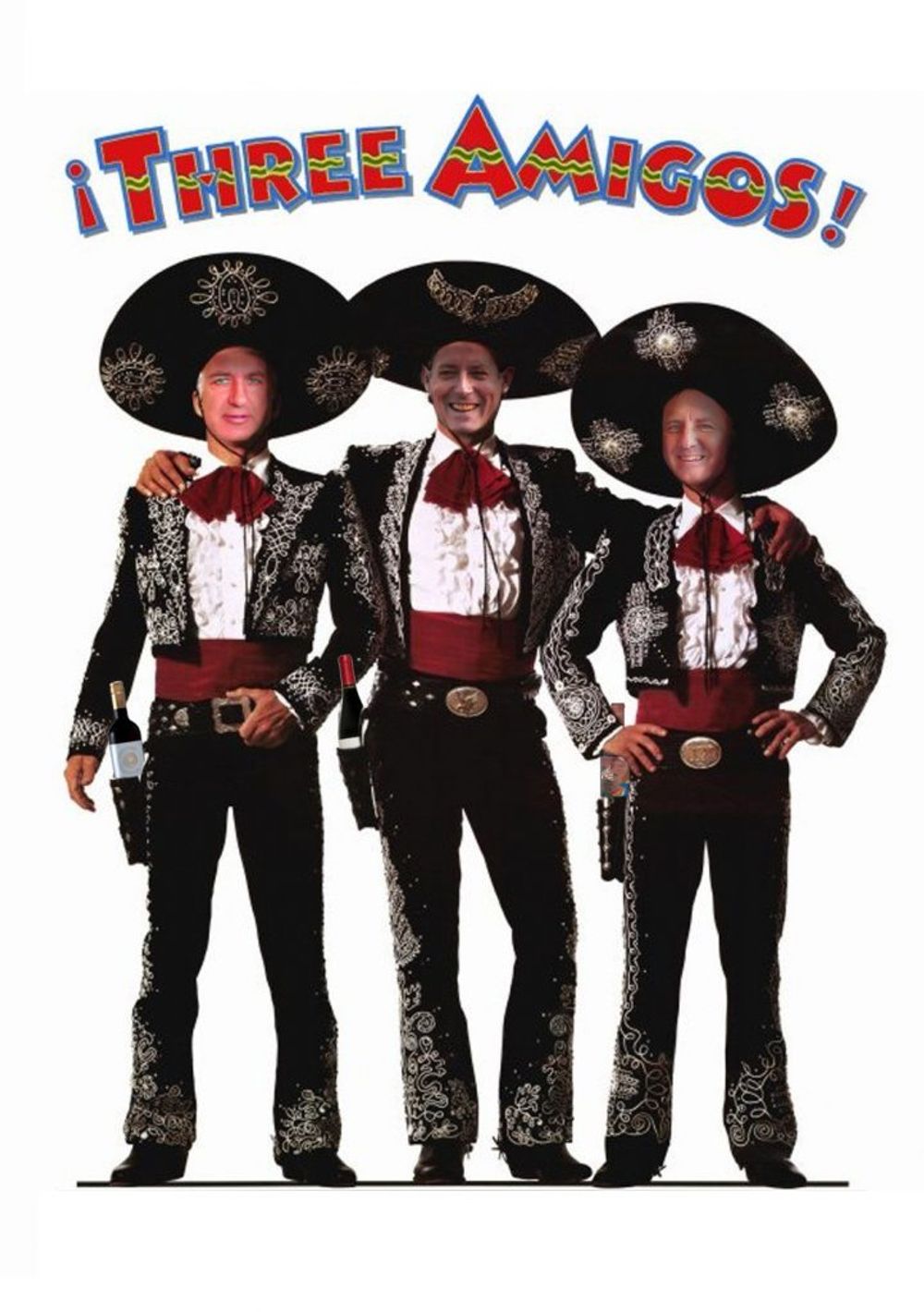
“I want to get us in the full sombrero outfits and ride up to a meeting on three horses,” laughs Hunt. “Complete with holsters with bottles of Three Amigos wine in them.”
You have been warned…
